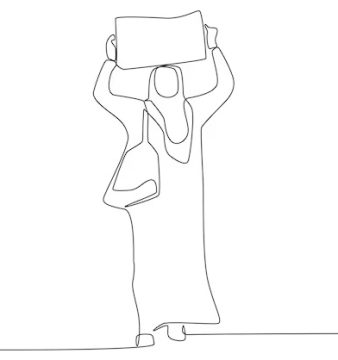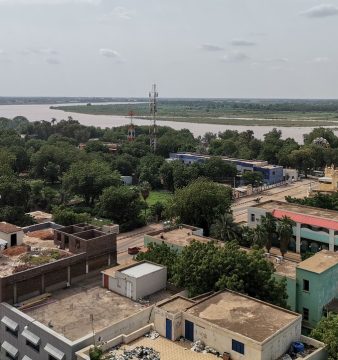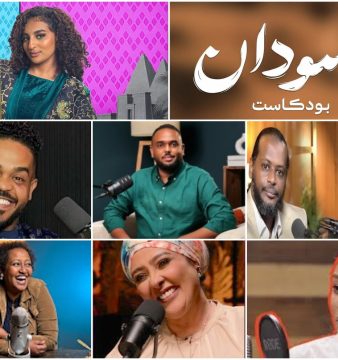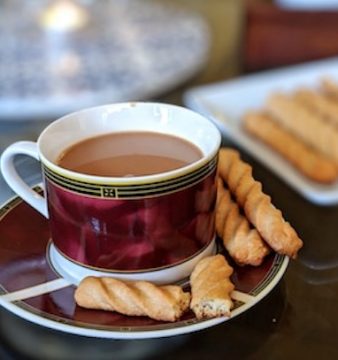The Unheard Stories of COVID-19 in Sudan
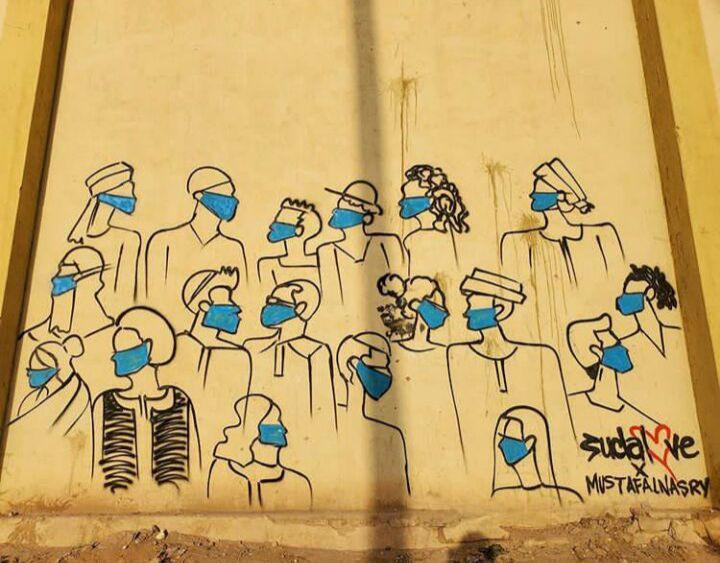
It’s been nearly two months since the first case of COVID-19 was confirmed in Sudan, which was on 13 March 2020 when a citizen arrived to Khartoum from the UAE. Ever since, Sudan’s government has taken the required preventive measures to curb the transmission of the fatal virus that took the lives of hundreds of thousands worldwide. Strict curfews were imposed, bridges were blocked, and schools and universities were abruptly closed.
At first, Sudan saw very few number of cases, and desperately hung on to the theory that country’s immense heat along with traditional herbs like garad and zanjabeel, ginger, would be enough to kill the virus. Before we knew it, the number of cases grew exponentially and the first case of community transmission was confirmed on 13 April 2020. Within two months, Sudan saw well over 1,000 cases. While restaurants, supermarkets, shops and other public places were closing up, the Call Centre for Coronavirus was opening up to receive phone calls to millions across Sudan for any coronavirus-related inquiries free of charge. ’Call 9090, or 221 to notify us about any suspected case/s,’ said the Minister of Health, Dr Akram Ali Altoum at the end of each of his public speeches on TV.
Working at the Call Centre has really been an eye-opening experience to say the very least. Although I have travelled a few times to remote areas in Sudan and thought I got to experience firsthand the life of the villagers, I think I failed to truly acknowledge the vast difference between the urban and rural cities. With each phone call I have received, I would be more and more enlightened about the dire situation in rural areas. We receive about 7,000 calls on a daily basis and the calls range from simple advice and consultations to giving daily updates about the number of cases, to raising awareness (symptoms, prevention, mode of transmission, etc) to reporting suspected cases to directing patients to the available hospitals open for admission.
Here are some of the stories I found particularly interesting:
There is no such thing called the coronavirus.
A young man from Dinder, Sennar, which is a state that has one of the highest numbers of COVID-19 cases in Sudan, called saying he did not believe there was such a thing called ‘corona’ as people in Sudan refer to the pandemic. He said that it was a political game being played by Abdel Fattah Al Burhan Chairman of the Sovereign Council and General Mohamed Hamdan Dagalo, Deputy Head of the Sovereign Council, to distract the Sudanese people from the first year anniversary of the violent dispersal of the sit-in, which occurred on 3 June 2019. He said it’s a desperate attempt to silence the Sudanese people and keep them from protesting on that day.
What an interesting conspiracy theory, I thought to myself. His thinking reflected how the people have zero trust in the government as for 30 long years, under the rule of former Sudanese President Omar Al Bashir, they have witnessed the most brutal and untruthful of governments that denied them their basic rights of education, health, and peace. As a result, they are having a difficult time understanding the true cause behind the coronavirus.
I have found the cure for the coronavirus.
A woman from the River Nile state who called me excitedly saying she had found the cure for Corona. Yes, just like you read it!
‘شفتي تشيلي اربعة قرض تمصيهم ,تشربي معاهو موية زم زم وتقري صورة ياسين’
“Take four pieces of garad, drink it with Zamzam water and recite Surat Yaseen”.
Garadh (Sunut tree/fruit; Acacia nilotica) is a Sudanese herb commonly used as traditional medicine to cure colds, flus and other forms of influenza. Zamzam water is holy water from Masjid Al Haram in Mecca, Saudi Arabia.
She told me to save her number incase the remedy worked. I asked for her name just so I could address her in a more professional manner, but she seemed too afraid to give me her name. Instead she said,
لو الوصفة عافت المصابين بديك اسمي غير كده لأ!” “
“If my remedy treats those ill, I’ll give you my name, but until then no!”
I heard of a disease called “Karu”.
A person from Ed Daein, East Darfur called me and said he has heard of a disease called “Karu” that has been spreading around and was calling for verification. At first, I thought he was joking and playing around, so I asked him to repeat what he said.
“قلت ليك يا دكتورة سامع بي مرض اسمو كرو كده حايم داير اتاكد منو”
“I said doctor, I have been hearing about a disease called Karu and called to verify this news.”
At first I found it disastrously funny, but seconds later, I found it quite shocking and alarming that people were still unaware of the pandemic and its threat. I replied by correcting the name of the virus and told him everything he needed to know.
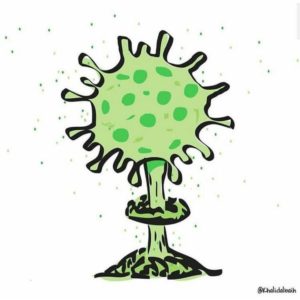
The numbers of COVID-19 cases are lies.
Another person from Tamul, El Gezira called saying he wasn’t convinced that there is a fatal virus spreading in Sudan. Making quite the accusation, he said all these reported cases are lies, and for every new recorded case, the Minister of Health, Dr Akram Al Toum receives more funding from the WHO, and instead of allocating this money to the health sector and he uses it for personal benefits.
It takes a lot to convince these people that these numbers are real, and coronavirus is, in fact, real. The majority of young people in Sudan grew up under a corrupt and unjust government so they believe everything happening is a conspiracy planned against them. He even asked me if we had people working at the ministry who had got the disease, because if not, it just meant that we had the treatment and we were hiding it from the people. After almost 15 minutes of trying to reason with him, telling him I understood where he was coming from but still feeding him the truth, he was finally convinced and said,
“شكرا يا دكتورة لي تعاملك الراقي وكلامك الموزون. انا من قبيل فاتح السبيكر وفي ناس متجمعين معاي بس عشان يسمعو كلامك دا. طيب كدي يا دكتورة وريني اكتر عن المرض”
“Thanks doctor for your kind manner, and reasonable/convincing points. I’ve had my phone on speaker and a group of men have gathered with me just to hear what you were going to say. Ok, now doctor, tell us more about this illness.”
And with that, I gave out a sigh of relief and proceeded. It’s always nice to know you’ve raised awareness about the virus and been able to convince someone. Only with conviction, can one practice prevention measures, and thus help in protecting themselves and those around them, and ultimately the whole country.
This coronavirus you talk about won’t reach us.
A farmer from Al Fashir, North Darfur called to say this phone number was his only source of information. I couldn’t hear him properly due to bad network as well as the sounds of the animals in the background. Regardless, he said:
“نحن يا دكتورة لا عندنا تلفزيونات لا تلفونات ولا عندنا العمارات حقتكم الفي الخرطوم دي. نحن عندنا بس بهايمنا دي. نصحه الصباح نشوف البقر والغنم ديل بي وين, ناكل كسرة بالموية ونصلي وننوم بس. قريتنا زاتها صغيرة نحن عبارة عن عشرة عوائل بس لا في زول بدخل علينا او يطلع مننا يعني كورونا البتقوليها دي ما بتجينا زاتو””
‘We don’t have TVs, or smart phones here, doctor, nor do we have the high buildings you have in Khartoum. We just have our cattle. We wake up in the morning, cater for the needs of our animals, eat kisra with water, pray and sleep. Our village consists of 10 families only. No one walks into, or leaves this village so this coronavirus you talk about won’t reach us anyway.’
Clean water is a very luxurious resource.
I received a call from El Geneina, West Darfur, from someone who was interested to learn about the coronavirus. When I told him one of the preventive measures was to wash your hands with water and soap for 40 seconds whenever you can, he explained that clean water is a very luxurious resource, and they had to travel quite a distance to get their hands on clean water. As for soap, that was out of the question.
For someone like him coming from an area that’s witnessed hundreds of killings per day by the Janjaweed, a virus as tiny yet fatal as the coronavirus didn’t really mean much to him. I could sense it was the least of his concerns.
As long as they follow the religion of Islam, they will not be afflicted by COVID-19.
A boy from Ash Shamaliyah or the Northern State called saying his brother had some of the symptoms of COVID-19 but was worried because his brother resided in a Khalwa (Quran School) and the sheikh didn’t acknowledge the coronavirus and had a strict firm belief that the Quran heals all calamities. He forbid his student from seeking any medical help saying it was ‘just a cough’. The sheikh said that the coronavirus was for Al kuffar, the infidels, and as long as they follow the religion of Islam, they will not be afflicted by COVID-19.
We will die of hunger before COVID-19 even reaches us.
An angry woman called from Khartoum, saying she can’t see any COVID-19 patients. All she could see were her hungry kids in front of her. When I said The Resistance Committee was established to help people like herself she said the committee only work in central areas like Khartoum and Bahri, not in the outskirts of Khartoum. She said the government was committing a crime in imposing this lockdown and they would for sure die of hunger before COVID-19 ever reached them.
‘How do you expect me to feed my kids and family? Or do you just think of the lucky ones in Khartoum, who can afford to stay at home and don’t consider us in the outskirts? Please help me in making my voice reach the Prime Minister and the Minister of Health.’
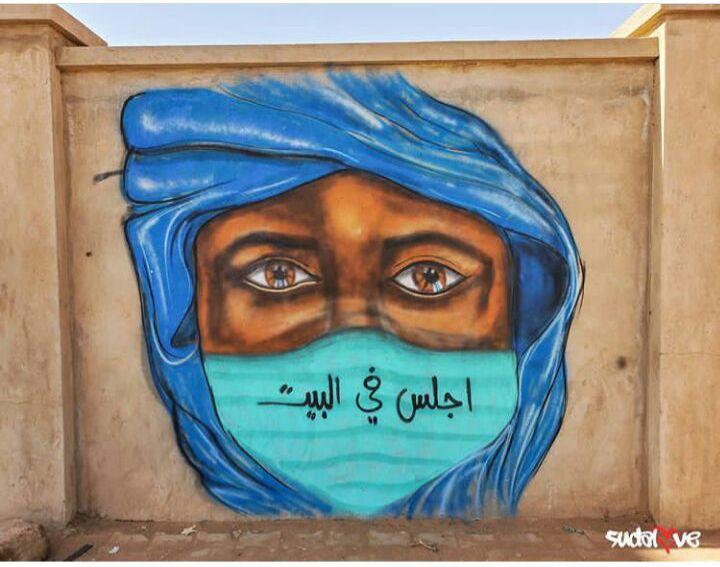
You’re making such a huge fuss about corona. It’s not even that serious.
A very irritated woman called me the eve of Eid Al Fitr. She was so irritated she didn’t even give me the chance to introduce myself or ask her how I could help. She said:
“انتو يا ناس ما بتخافوا ربنا ولا شنو. شنو شابكننا كورونا كورونا! ياخ زهجتونا زاتو كورونا كورونا. ما ياه مرض زي النزلة مكبرين الموضوع مالكم. وبعدين قل لن يصيبنا الا ما كتب الله لنا ياخ
اها اشرحوا لي يعني. حرمتونا لمة العيد ولمة الاحباب وربنا بسالكم .كدي أسألك، انتي حصل شفتي ليك حالة كورونا؟ قلت ليك حصل ولا ما حصل؟!”
“You people don’t fear God, do you? You’re making such a huge fuss about corona. It’s not even that serious it’s just like a flu nothing more nothing less. And like the Quran says, ‘Nothing will happen to us except what Allah has decreed for us.
So? Explain yourselves! You deprived us from Eid gatherings, and gatherings with our loved ones. God will ask you! Also, let me ask you a question, have you ever seen a corona patient? Have you or have you not?!”
And unlike the previous gentleman, who also had doubts, but had let me explain and answer his questions, this woman was done and had already hung up before I could even say anything.
These phone calls prove time and time again that Al Bashir and its regime succeeded in crippling the Sudanese population not just by war and poverty but as well as by the lack of education, and access to information. Al Bashir and his regime left majority of the population illiterate and denied them of their basic human right to education. Unfortunately, majority of the people calling the call centre demonstrated a lack of knowledge and education.
I was reminded that very few in Sudan had the luxury of accessing platforms such as the BBC, CNN and other international media outlets whenever they pleased, or scrolling through the WHO’s pages and other reliable sources of information on social media for updates. With every phone call I receive, I understand a little more about my country, its people’s mentalities, and what the country and its people are suffering from the most. I truly believe that the customers, who have called have taught me and will continue to teach me much more than I could ever teach them. As I have come to see, Sudan has much bigger issues to tackle beyond COVID-19. Hunger, poverty, lack of resources, lack of education, which have been challenges long before the pandemic broke out and pose as much of a threat as COVID-19 or greater in the long term.
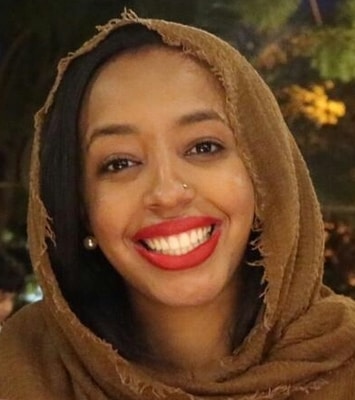
Saria Osman El-Amin is a 22-year-old recent graduate of the Faculty of Medicine, University of Khartoum (Class of 2018). Currently based in Khartoum, Saria is a part-time English and maths teacher. She values time alone a lot, and without it, she feels exhausted and unable to function. She enjoys reading books, travelling, going out with friends, having a laugh and of course, eating good food.

